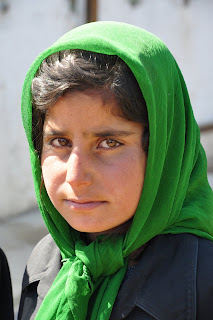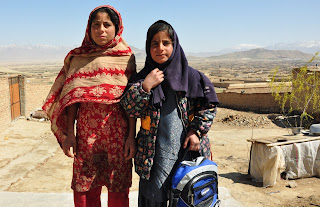
The disbelief and outrage is over a new law--just signed by President Karzai last week--that legalizes rape in marriage by forbidding women from refusing sex; bans a woman from leaving the home, working, or seeing a doctor without her husband's permission; and grants child custody only to fathers and grandfathers in cases of divorce. Women must also wear makeup if their husbands demand it.
"When a husband dies, women can only inherit movable property--no houses or land," this woman told me as she quickly transferred a damning UNIFEM report onto a USB drive. This would keep me busy on my overnight layover in Istanbul.
It is obvious that in an attempt to win support in the upcoming August elections, President Karzai (who is wildly unpopular) is trying to appease Islamic fundamentalists. What's not so obvious to me as I wave goodbye is where the hell the West was when this bill was drafted a year ago. In situations like this, I want to count on Hillary Clinton to spring from a phone booth, her human rights cape whirling. Isn't this a violation of international law and Afghanistan's own constitution, which mandates equal rights for men women?
I believe women are a bellwether in society--and what happens with them is an indication of where the society is heading. Women may be the first to lose their rights, but they are usually not the last. Therefore, it should come as no solace that this law affects Afghanistan's Shiite community(that's about 15 percent of the population who are allowed under the constitution to have their own family law).
Even as President Karzai simultaneously defends the bill and says it will be reviewed due to global uproar, another family law--this one for the Sunni majority--is in the works.
"This is a disaster for women," is one of the last things I heard as I left Afghanistan. And those words are still ringing in my head.
Other Reading:
Washinton Post Article
New York Times Article
Al Jazeera Report



























